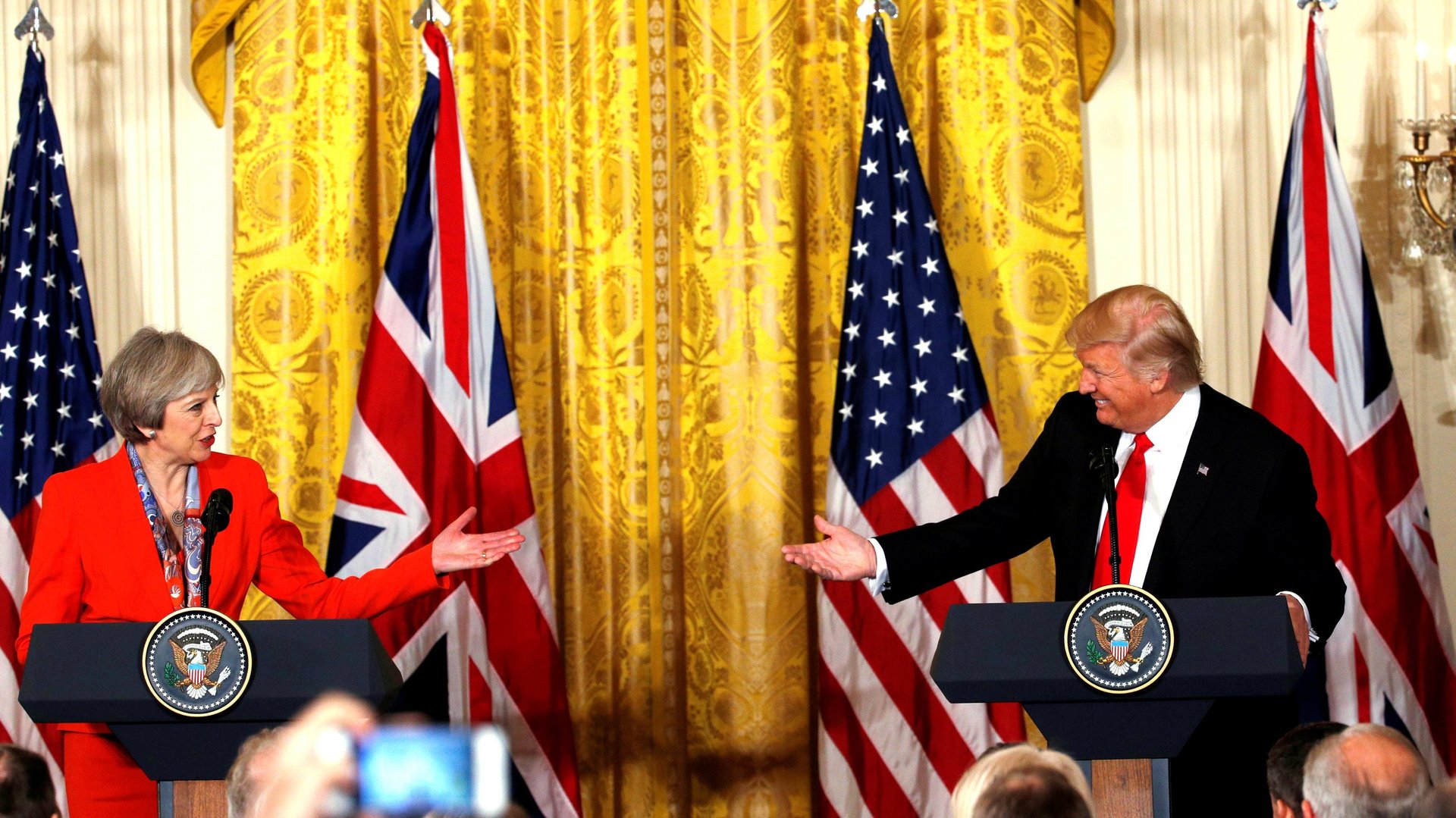A Western leader showed class and clarity in the face of Assad’s chemical attack, but it wasn’t Donald Trump
In the aftermath of reports suggesting Syrian president Bashar al-Assad had once again unleashed a deadly chemical weapon on civilians, at least one Western leader—embattled by human rights criticism at home—immediately responded with class and clarity. Issuing a bullish statement on Twitter, this leader called for a full investigation and declared, “there can be no future for Assad in a stable Syria.”


In the aftermath of reports suggesting Syrian president Bashar al-Assad had once again unleashed a deadly chemical weapon on civilians, at least one Western leader—embattled by human rights criticism at home—immediately responded with class and clarity. Issuing a bullish statement on Twitter, this leader called for a full investigation and declared, “there can be no future for Assad in a stable Syria.”
That leader, of course, was British prime minister Theresa May. While usually one would expect such a strong statement to come from the US—the traditional leader of the free world—it was the leader of the UK who set the tone on Tuesday.
While May’s position sent a global message, US president Donald Trump was notable for his absence. Facing his biggest foreign policy crisis yet, he said… nothing. Instead, in an addendum to a statement on cutting government regulations at home, Trump’s spokesman Sean Spicer briefly condemned the attack and blamed it on former president Obama’s “weakness and irresolution” on Syria.
The commentariat’s backlash was swift. And after several hours of criticism, the White House emailed out the same statement that Spicer had read initially, this time saying it had come from the president.
Trump’s not entirely wrong to criticize Obama—many experts argue that the former president’s mishandling of Syria has left the incoming executive with far fewer options on how to deal with Assad. But the complaint might have carried more water had Trump developed any kind of clear policy of his own on the matter. (Or had he not repeatedly instructed Obama to “forget Syria” after Assad’s first chemical attack in 2013.)
Instead, Trump’s stated policy in the region amounts to little more than bluster and a handful of conflicting statements. Having spent the presidential campaign claiming he had a secret plan to defeat ISIL but refusing to share it, Trump ordered the Pentagon to come up with such a fool-proof strategy after he took office. When asked what that plan was on Tuesday, Spicer merely responded that Trump “has made it clear in the past… that he is not here to telegraph what we’re going to do.”
With the administration unable or unwilling to share any details, the press and public has been left with a couple of brief statements from the two highest-ranking foreign policy officials in Trump’s administration (Trump’s son-in-law Jared Kushner notwithstanding). On March 30, secretary of state Rex Tillerson implied that the US was no longer calling for regime change in Syria; instead, the Syrian people would decide Assad’s fate. Days later, UN ambassador Nikki Haley said “our priority is no longer to sit there and focus on getting Assad out”—only to seemingly contradict herself hours later, reportedly saying that ”Assad is always a priority” and the US wants him brought to justice.
Asked about the conflicting statements, Spicer said, “there is not a fundamental option of regime change as there has been in the past.”
Leading Republican foreign policy hawk, US senator John McCain, suggested that Trump’s softening stance in the region and the chemical attack were linked: ”I’m sure they took note of what our secretary of state said just the other day,” he told CNN. ”I’m sure they are encouraged to know the United States is withdrawing and seeking a new arrangement with the Russians.” McCain is a fierce Trump critic but even White House allies like senator Tom Cotton broke with the president to continue calling for regime change.
Irrespective of what Trump ultimately decides is the right solution for the unending humanitarian catastrophe in Syria, one thing is certain: silence, confusion, and blaming Obama are not going to get him anywhere.